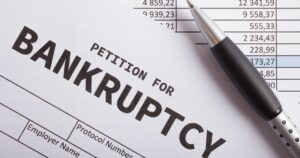Is it better to file Chapter 7 or Chapter 13 bankruptcy?
While many assume that filing Chapter 7 is the best route for bankruptcy, not all cases qualify for it and not all debtors would benefit the most from this type of bankruptcy. Consumers have two primary choices: Chapter 7 and Chapter 13. And before you assume one is better than the other, you should consult with a bankruptcy attorney and see how each would affect your current and future financial situation.
When Chapter 7 Bankruptcy Makes More Sense than Chapter 13
In some cases, Chapter 7 is the better choice over Chapter 13. For a start, it is faster than Chapter 13, and in some cases, you can complete the process in under a year; Chapter 13 takes three to five years to pay down creditor balances.
However, not everyone qualifies for Chapter 7 bankruptcy, and you must pass the means test and have the correct types of debts to take advantage of this form of bankruptcy.
The Pros of Picking Chapter 7 over Chapter 13
- Speed – If you need a quick resolution of your debt issues, then you may opt for Chapter 7 as it takes three to six months on average.
- No Payment Plans Required – Unlike Chapter 13, you do not have multiple payments each month for a span of three to five years to your creditors.
- Debts Are Wiped Clean – Most of your debts are wiped from your record, and creditors are no longer allowed to seek collections from you once your Chapter 7 process is completed. However, not all debts are wiped clean, such as child support, alimony, student loans, and taxes. Therefore, you may have a few debt obligations remaining once you are done.
- You Still Can Protect Property – While you might assume Chapter 7 means you will lose your property, the reality is that you can keep most property under the latest exemption laws. Yes, you will lose property that is not considered “necessary” (such as vacation homes, RVs, and other items), but you may end up keeping your home, clothing, and personal items.
- You May Keep Your Car – If you can repay the past due balances on your vehicle, then you might be able to avoid repossession and keep your vehicle.
Do You Qualify for Chapter 7?
Chapter 7 works well for consumers in specific financial situations. Some instances where you may qualify for Chapter 7 include:
- You do not own much property or own any luxury items that could be liquidated as part of your bankruptcy;
- You have mostly credit cards, medical expenses, personal loans, and other unsecured debts; and
- Your income does not go higher than the state’s median income.
When these three factors apply to your case, Chapter 7 makes more sense than opting for Chapter 13.
When Chapter 13 Is Better than Chapter 7
In some cases, filing for Chapter 13 is the better option – even if you qualify for Chapter 7. Chapter 13 can be better in some instances, even if it means you will not get out of your debts for three to five years.
Also, if you do not qualify for Chapter 7 bankruptcy, Chapter 13 is your backup so that you can still get a fresh financial start.
Reasons Consumers May Not Qualify for Chapter 7 and Must File for Chapter 13 Instead
You might not qualify for Chapter 7 at all, especially if your current income during the six months before filing exceeded the state’s median income range based on your household size.
Also, if your disposable income is too high, meaning the court feels you could pay down debts in a repayment plan rather than discharge them, they would deny your request for Chapter 7.
The Pros of Filing for Chapter 13
Chapter 13 bankruptcy offers advantages over Chapter 7 that most consumers do not realize. Just some of those advantages include:
- Helping you catch up when you are behind on your mortgage or car loan. Are you behind on your mortgage or vehicle payments? If so, you might qualify for Chapter 13 and restructure those payments into the plan – meaning you can keep your car and home without any repossession from the lender.
- You have child support, alimony, and tax debts you cannot discharge. If a vast portion of your debts is under the non-qualified debts for Chapter 7, then Chapter 13 is your better option. You still get protection from creditors, but now you can pay down those debts in a three to five year plan.
- You want more time to repay your debts. Chapter 13 gives you time to repay your debts and helps you pay them down without erasing them. You have the automatic stay in place, which means creditors cannot take action against you during the repayment plan.
- You have a property you want to keep. Any property that is not exempt must be sold and the proceeds used to pay down debts in Chapter 7. But if you file for Chapter 13 bankruptcy, you can keep those non-exempt items as you are not required to sell to pay off debts. You repay your debts from your income; therefore, if you have a property that you would not want to sell, Chapter 13 is the better choice.
How Do You Choose between Chapter 7 and Chapter 13?
While you know the pros and cons of both Chapter 7 and Chapter 13, you need to speak with a professional before picking which is right for you. First, you might not qualify for one or the other. Also, depending on your financial situation (and what the future holds), one may be better in the long run than another.
It is best if you schedule a consultation with a bankruptcy attorney to go over your current financial situation, assets, property, and then decide which you qualify for and which is best based on your unique situation.

